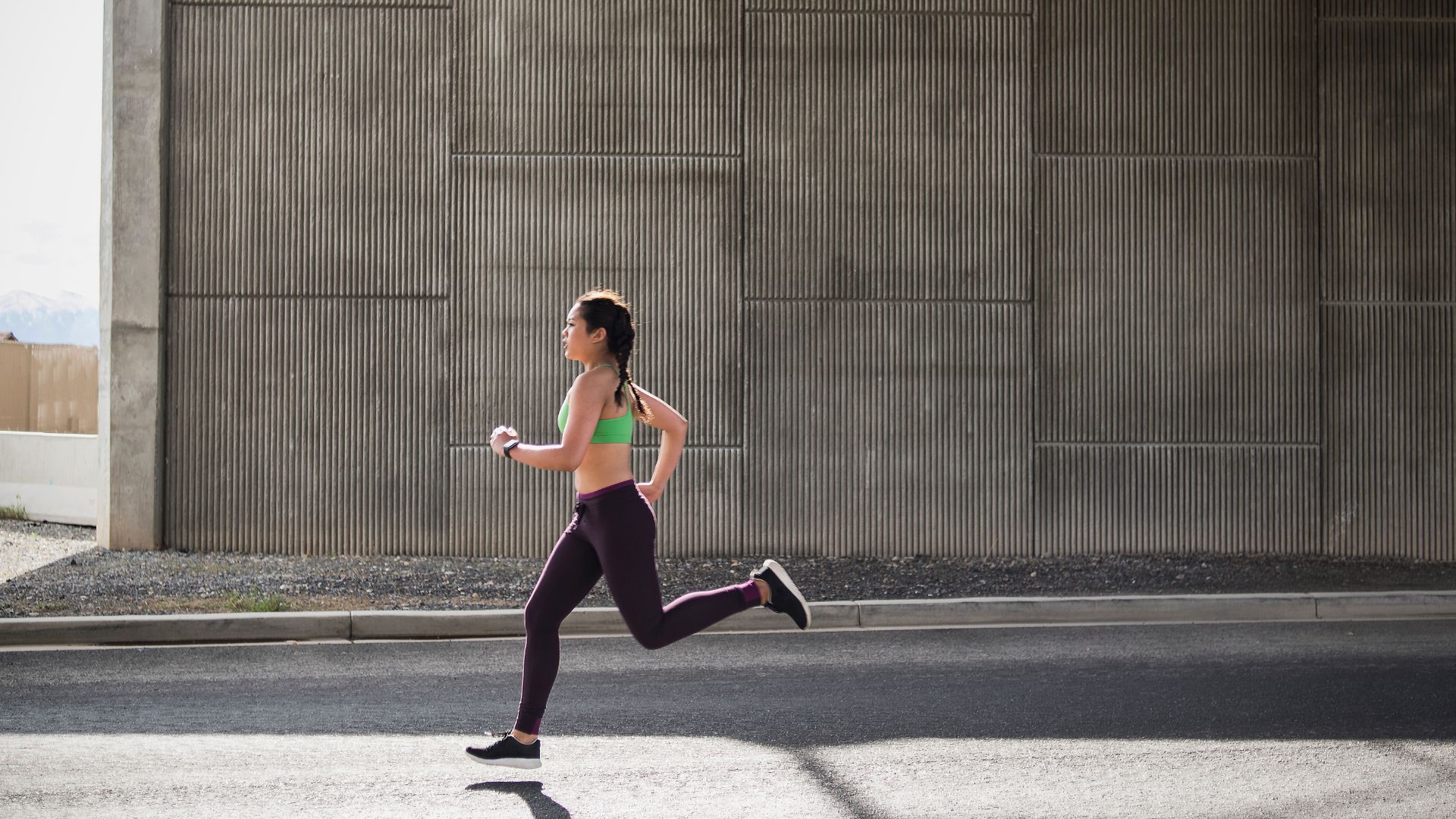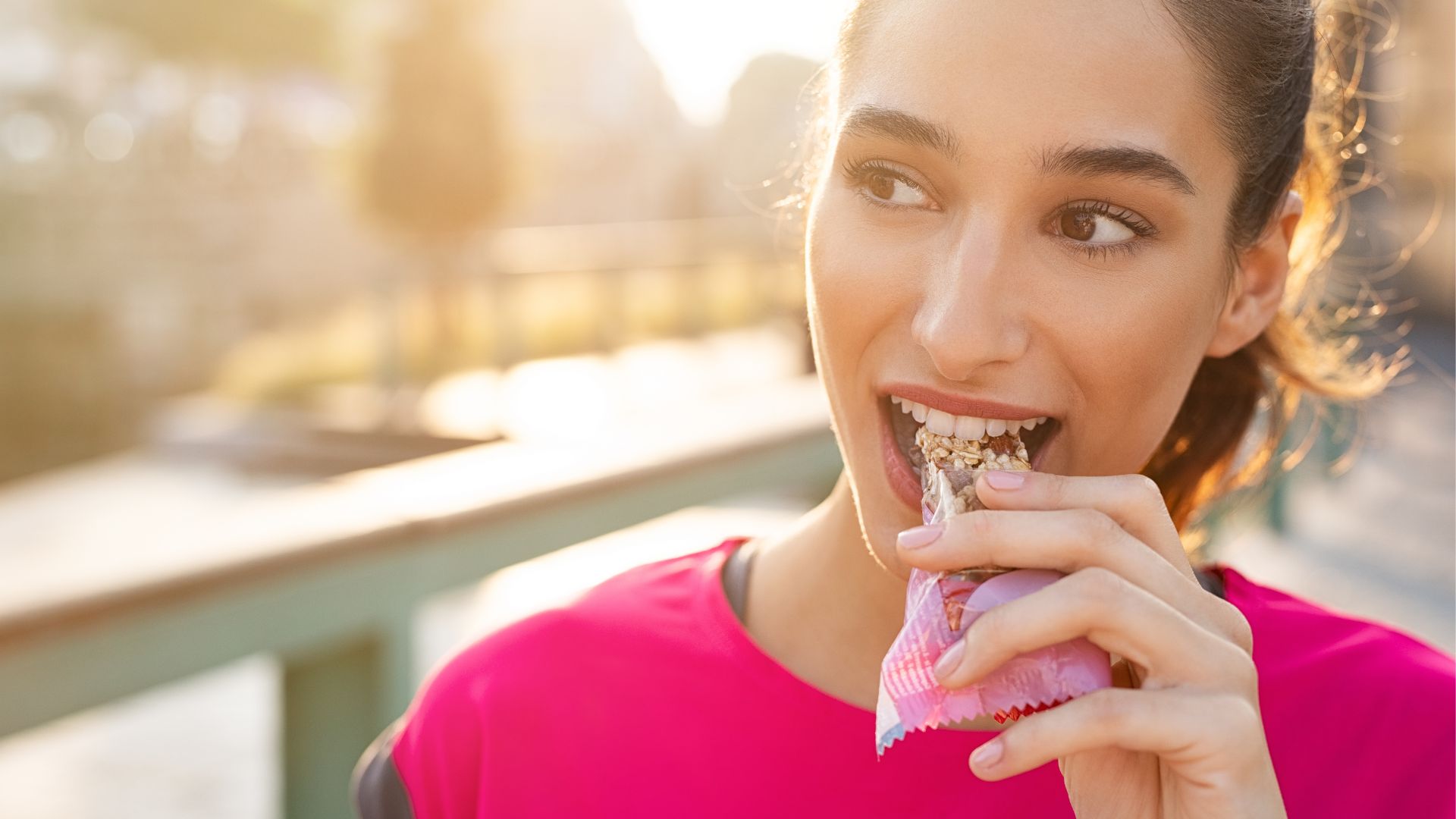What to eat before running, according to an expert
These are the best foods to eat pre run to help fuel your body further


Knowing what you should eat before running is vital; pick the right foods and you'll feel energised and rearing to go, but pick the wrong ones and you may end up feeling fatigued or, even worse, bloated.
“Running has a very high energy demand, so for optimal performance and an effective run we need to ensure our bodies are prepared,” says Alan Morton, lead tutor and assessor at The Fitness Group, who’s also worked with multiple endurance athletes.
Deciding what to eat before you lace up your running shoes and head out all depends on how much time you have before your run and its intensity (e.g. are you doing a marathon or just going out for a short jog?). Below, Alan helps break down the best foods you should be consuming in your pre run meals, as well as snacks for when you’re pushed for time.
Best foods to eat before a run
“I would recommend that a pre run meal should be eaten 3-4 hours before the event to allow for digestion and for blood sugar and insulin levels to return to normal before the start,” says Alan. Ok, so what type of foods should you be eating?
Carbs are your most important macronutrient, as it's what will fills your body's glycogen stores. “Glycogen is your stored sugars that your body uses for energy and sugar is the primary fuel the body uses in a running event,” explains Alan. “This is because the body can quickly and easily turn its storage of sugar (glycogen) into energy.”

Here are some high carb foods that you should integrate into your pre run meals:
- Breakfast cereals
- Porridge
- Bread
- Rice cakes
- Crackers
- Wholemeal biscuits
- Boiled rice
- White potatoes
- Sweet potatoes
- Yams
- Pasta
Alan also advises that your pre run meal should also be low in fat, protein and fibre. If your pre run meal is too high in these it will slow down the absorption of sugar and make it difficult for your body to fill its glycogen stores. Plus, fibre can cause gastrointestinal upset (like bloating), which will make you feel uncomfortable and full for your run.
Get all the latest news, reviews, deals and buying guides on gorgeous tech, home and active products from the T3 experts
Best pre run snacks
If you have less than an hour before your run then you’re best opting for a snack rather than a big meal. This will ensure that you’re still fuelling your body, but won’t be left feeling too full or uncomfortable for your run. “These snacks should be in smaller amounts but with higher sugar absorption to achieve the same important objective of filling glycogen stores,” says Alan.

Some good pre run snack options are:
- 300ml carbohydrate drink (20% maltodextrin)
- Peanut butter sandwich
- Pretzels
- Crackers
- Bananas
- Granola bar
If you can’t eat prior to an endurance event, Alan says it’s critical that you consume 50-60g carbohydrate per hour during the event to prevent hypoglycaemia (where your blood sugar levels drop too low), with either snacks or energy gels.
Should I run fasted?
Some people (particularly early risers) may choose to run on an empty stomach. However, this really comes down to personal preference. "The fasted run benefits are proposed by the idea of when you are in a fasted state you will burn a higher percentage of the energy as fat, due to your glycogen stores being depleted by the fasted state," explains Alan. However, he says there is no real evidence to support that fasted cardio has a greater fat burning effect than non-fasting, or vice versa.
"For the recreational runner a fasted or non-fasted run will have very little impact on run quality or duration," says Alan. "If you prefer and have adapted to fasted runs then this would be the option for you, but if you’re used to eating beforehand, stick to this."

Bryony’s T3’s official ‘gym-bunny’ and Active Staff Writer, covering all things fitness. She is a certified personal trainer and also a part-time fitness instructor. In her spare time, you will find her in her natural habitat - the gym - where her style of training is a hybrid of bodybuilding and powerlifting. Bryony loves writing about accessible workouts, nutrition and testing innovative fitness products that help you reach your fitness goals and take your training to the next level.